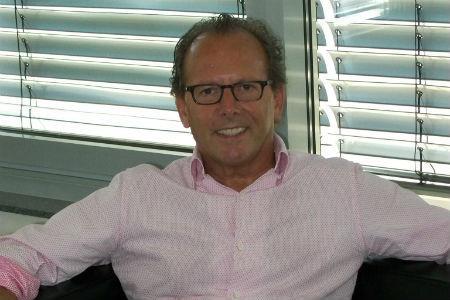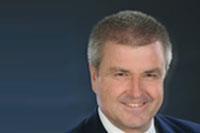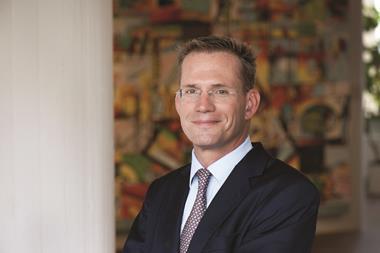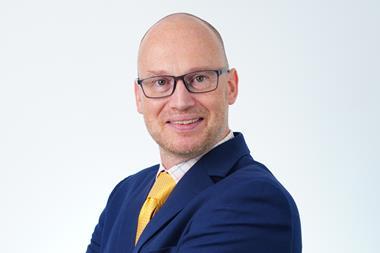Fraport risk manager talks about his career and the recent merger of Germany’s two risk management associations

How did you enter the risk profession?
I qualified as a lawyer and after I finished my state exams my first job was at Hanover Re where I worked for three years. After that I went to Siemens where I was responsible for their two captives – one in Dublin and also the reinsurance captive in Berlin.
What does your current job entail?
For the past 19 years I have been risk manager at Frankfurt Airport (Fraport). Here I am not only responsible for Frankfurt Airport I also have worldwide responsibility for all our affiliates. We run airports in Lima, Peru; St Petersburg, Russia; Antalia, Turkey and many other countries. So my responsibility is worldwide.
Is your role predominantly about insurance?
Yes, I do work on the insurance side but on the other hand I also work together with those departments which are responsible for all risks – such as regulatory risk, currency risk and so on.
The enterprise risk manager and I both report directly to the CFO. Those people who are responsible for enterprise risk management are under me in the organisational hierarchy – although comparisons are difficult. Those people working with ERM report to their manager about balance sheet, profit and loss and so on.
How much has changed since you started at Fraport both in terms of your individual responsibilities and also the way in which the risk management profession has developed?
When I started working for Frankfurt Airport - which is now called Fraport as we are stock exchange listed - we had no affiliates in other countries. Now we are a worldwide operating company and I think we are the No1 or No2 airport worldwide
One of the biggest changes I have seen in terms of risk and insurance concerns the issue of in-house brokers.
Before I arrived, we had a broker for Frankfurt Airport. When I came we changed the situation and now our in-house broker is the only broker for Frankfurt Airport - not Marsh or Aon or any others. I employ 12 people here and they all come from brokers or law firms or insurers and so on.
I think it is fair to say that we know much better our own situation than a big broker and I now place all the policies by myself and not through the London Market brokers.
For example our liability limit is 1.3 billion euros per claim and I do not have a broker for that, I place it by myself – directly and not via the London Market. This is the same for property and all other insurance.
Only when we operate in other countries such as Russia does this change as we don’t know all the legal issues specific to these countries and some of the legal advice might need clarification around special national legislation elsewhere. In these cases, we would use a broker but not here in Germany.
This is definitely the biggest change over the years.
If the German model of in-house brokers is so successful why don’t companies in other countries do the same?
This does not happen only in Germany. We know that other German-speaking countries such as Austria and Switzerland also favour that model.
As a very short example, where once we would have had a broker, that broker would have gone to London for our 1.3 billion euros liability policy. The broker gets say a 600,000 euros fee – but I don’t need a fee because my company employs me and I place it directly with the insurers and not through the London Market. I don’t need the London Market for that.
Moving on to your other role as vice president for the German risk management association GvW, what was the logic behind the recent merger of the BfV and DVS associations?
There were several drivers behind this merger. The first is that within BfV and DVS the subject was the same. When we speak about insurance, the London Market, reinsurance or whatever, we always had to speak about the same subjects.
Also, 50% of our (BfV) members were also members of DVS so that means you can now earn a minimum of four days per year when you have these meetings and we can deliver them much better and explain the subjects in more detail. Remember, DVS employs its own personnel but BfV was run by its board who did it alongside their main job as risk managers.
From around 1963, if you had your own in-house company or in-house broker, you could get commission from the insurers but you could not get these commissions or fees from the insurers if you were only a department in your company. So many companies from that point in time earned commission – for example, I am not only the in-house broker for Frankfurt Airport I am also the broker for many other airports. So, while having that situation as an in-house broker, you can also be a broker to other companies and we can earn money from that. It is quite simple.
DVS was founded as an association which had many – almost 2000 members – from very small companies who were not able to pay a person for insurance.
Now though we have the perfect mix as we have in-house brokers, big houses who have only insurance departments such as RWE, the electricity company, or other firms.
But many of us have so-called third party business with brokers and we can also earn commission while insuring our own people with small liability policies, with household policies and so on. You cannot get that with just an insurance department.
How well is the merger working?
Both associations decided in April to merge together. BfV will officially finish at the end of November and the new name of the organisation is GvW. From now on we are representatives for the whole market not only for in house brokers and small companies but also for insurance departments and so on.
How have your members taken this change?
In that meeting, all members of DVS decided unanimously for the merger. In our (BfV) meeting we had only one member who was against and another undecided. Our conference in September is the first as GvW. Apart from the name, you won’t see too many other big changes at the conference compared with other years. GvW conference sessions will be the same as they were as DVS as they have been planned for some time and we wouldn’t change them anyway. The only change will be with the half-yearly members’ meetings – one in April and one in November. The meetings for the in-house brokers are not public as before but GvW is open for everybody.
How do you see the risk profession in Germany?
Education is probably the most important issue, be it within GvW or within our relationships with universities, so we are developing stronger relationships with universities. At BfV we started an educational programme with Lloyds and I sent two women risk professionals from Fraport to this programme and both passed the exam recently. This constant evolution means education will always get better – through all these changes, RIMAP, the Lloyds programme and better relationships with universities, there will be continuous improvement.
But how do you make risk and insurance an attractive occupation for young people, ahead of alternative careers?
Unfortunately that is true because in our times it is so difficult to get the best people into the insurance business because people don’t consider it to be a particularly “sexy” career choice. If you can make people realise how international major business is then things might change but first you have to convince them and you can only do that by visiting universities and speaking with people directly to try to persuade the best people to join you.
* GvW Congress takes place 7-9 September in Munich




















No comments yet